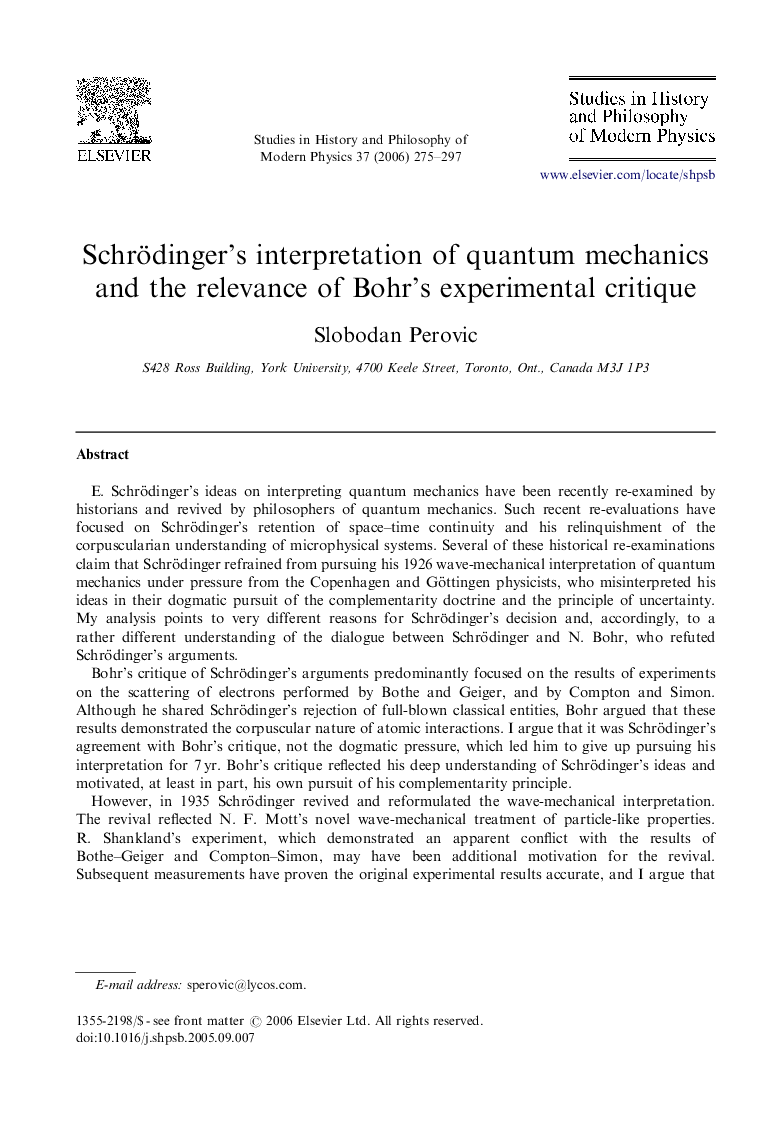| Article ID | Journal | Published Year | Pages | File Type |
|---|---|---|---|---|
| 1161315 | Studies in History and Philosophy of Science Part B: Studies in History and Philosophy of Modern Physics | 2006 | 23 Pages |
E. Schrödinger's ideas on interpreting quantum mechanics have been recently re-examined by historians and revived by philosophers of quantum mechanics. Such recent re-evaluations have focused on Schrödinger's retention of space–time continuity and his relinquishment of the corpuscularian understanding of microphysical systems. Several of these historical re-examinations claim that Schrödinger refrained from pursuing his 1926 wave-mechanical interpretation of quantum mechanics under pressure from the Copenhagen and Göttingen physicists, who misinterpreted his ideas in their dogmatic pursuit of the complementarity doctrine and the principle of uncertainty. My analysis points to very different reasons for Schrödinger's decision and, accordingly, to a rather different understanding of the dialogue between Schrödinger and N. Bohr, who refuted Schrödinger's arguments.Bohr's critique of Schrödinger's arguments predominantly focused on the results of experiments on the scattering of electrons performed by Bothe and Geiger, and by Compton and Simon. Although he shared Schrödinger's rejection of full-blown classical entities, Bohr argued that these results demonstrated the corpuscular nature of atomic interactions. I argue that it was Schrödinger's agreement with Bohr's critique, not the dogmatic pressure, which led him to give up pursuing his interpretation for 7 yr. Bohr's critique reflected his deep understanding of Schrödinger's ideas and motivated, at least in part, his own pursuit of his complementarity principle.However, in 1935 Schrödinger revived and reformulated the wave-mechanical interpretation. The revival reflected N. F. Mott's novel wave-mechanical treatment of particle-like properties. R. Shankland's experiment, which demonstrated an apparent conflict with the results of Bothe–Geiger and Compton–Simon, may have been additional motivation for the revival. Subsequent measurements have proven the original experimental results accurate, and I argue that Schrödinger may have perceived even the reformulated wave-mechanical approach as too tenuous in light of Bohr's critique.
